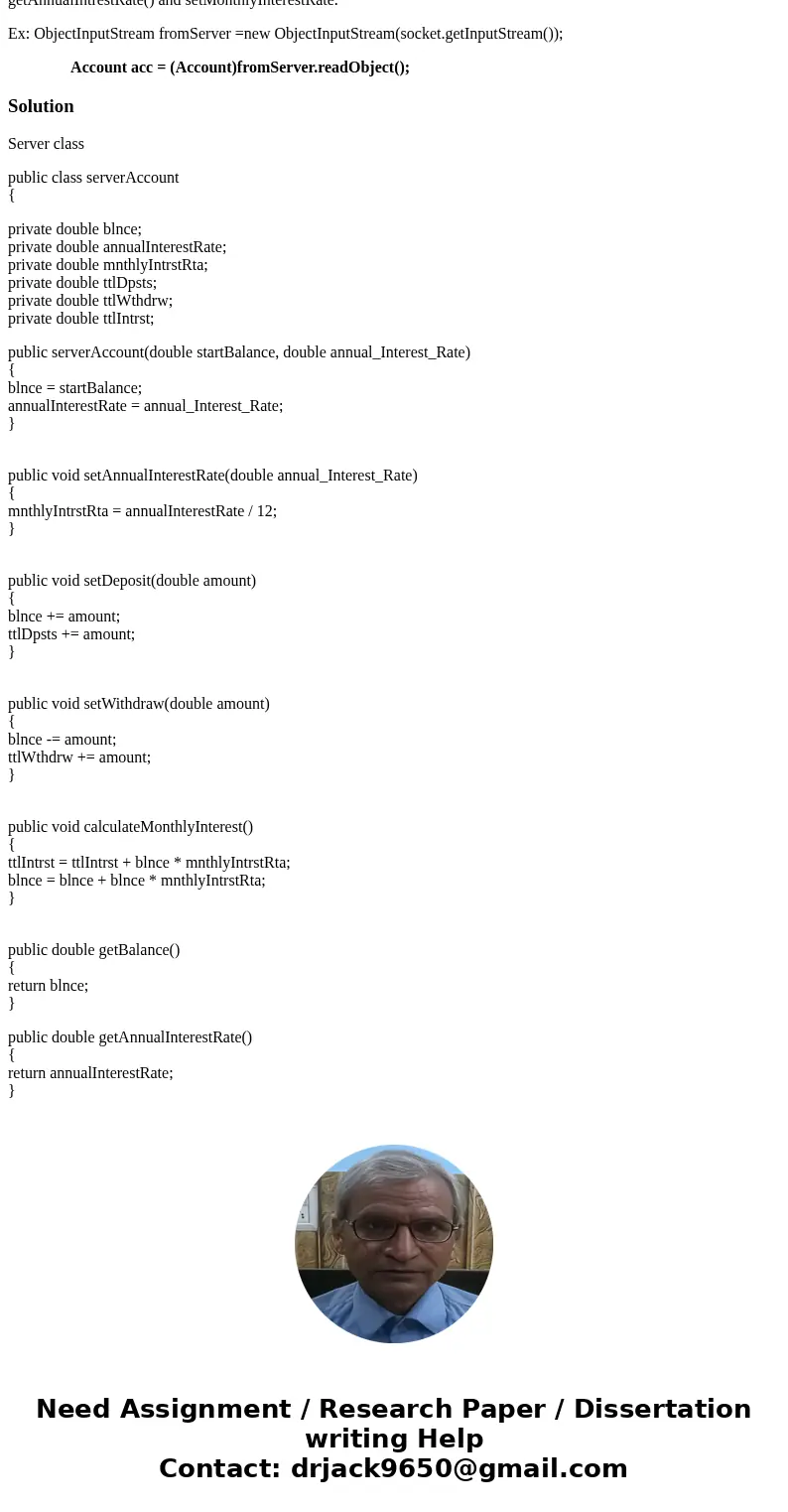Write necessary number of Java classes to implement the foll
Write necessary number of Java classes to implement the following functionalities and test it.
Steps:
Create a Java package with a name Quiz1
Create a Java class with the name Account with necessary data members and methods as given below:
A private int data field named id for the account (default 0).
A private double data field named balance for the account (default 0).
A private double data field named annualInterestRate that stores the current interest rate (default 0).
A private double data field named monthlyInterestRate default value 0
A no-arg constructor that creates a default account.
A parameterized constructor that creates an account with the specified id ,initial balance and annualInterestRate (in %)
Overridden toString method to return the Account object fields as a string
Get methods(getBalance(), getAnnualInterestRate() to return balance and annualInterestRate)
Set method(setMonthlyInterestRate()) to set the monthlyInterestRate
Create two Java classes with the names Server and Client respectively
In Server class, add a main method to perform following task
Register Service on a port (1-65535)
Wait and Accept Connection
Get the input stream associated with the socket and assign it to the ObjectInput Stream
Read the Account object
Compute the monthlyInterestRate.
monthlyInterestRate = balance *((annualInterestRate/100)/12).
Get the output stream associated with the socket and assign it to the ObjectOutputStream.
Close the opened Streams and Sockets.
In Client class, add main method to perform following task
Open your connection to a server, at specified port in Server
Create an Account object by invoking parameterized constructor with necessary values.
Get an output file handle from the socket and write the ObjectOutputStream
Get an input file handle from the socket and read the ObjectInputStream
Display the Account Object content with the monthlyInterestRate
Close the opened Streams and Sockets.
Note:
Add “implements java.io.Serializable” while creating Server class and Account class.
SincereadObject and writeObject methods return Object type , typecast it with Account Class to invoke getBalance() and getAnnualIntrestRate() and setMonthlyInterestRate.
Ex: ObjectInputStream fromServer =new ObjectInputStream(socket.getInputStream());
Account acc = (Account)fromServer.readObject();
Solution
Server class
public class serverAccount
{
private double blnce;
private double annualInterestRate;
private double mnthlyIntrstRta;
private double ttlDpsts;
private double ttlWthdrw;
private double ttlIntrst;
public serverAccount(double startBalance, double annual_Interest_Rate)
{
blnce = startBalance;
annualInterestRate = annual_Interest_Rate;
}
public void setAnnualInterestRate(double annual_Interest_Rate)
{
mnthlyIntrstRta = annualInterestRate / 12;
}
public void setDeposit(double amount)
{
blnce += amount;
ttlDpsts += amount;
}
public void setWithdraw(double amount)
{
blnce -= amount;
ttlWthdrw += amount;
}
public void calculateMonthlyInterest()
{
ttlIntrst = ttlIntrst + blnce * mnthlyIntrstRta;
blnce = blnce + blnce * mnthlyIntrstRta;
}
public double getBalance()
{
return blnce;
}
public double getAnnualInterestRate()
{
return annualInterestRate;
}
public double getMonthlyInterestRate()
{
return mnthlyIntrstRta;
}
public double getTotalDeposits()
{
return ttlDpsts;
}
public double getTotalWithdraws()
{
return ttlWthdrw;
}
public double getTotalnterest()
{
return ttlIntrst;
}
public void displayData()
{
blnce = Math.round(blnce * 100.0) / 100.0;
ttlIntrst = Math.round(ttlIntrst * 100.0) / 100.0;
System.out.println();
System.out.println(\"The ending blnce is: $\" + blnce);
System.out.println(\"Total amount of deposits: $\" + ttlDpsts);
System.out.println(\"Total amount of withdraws: $\" + ttlWthdrw);
System.out.println(\"Total interest earned: $\" + ttlIntrst);
}
}



 Homework Sourse
Homework Sourse